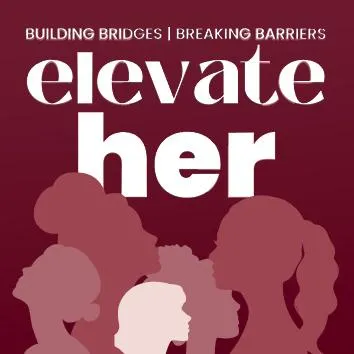Cultivating diverse and empowered leadership to power South Africa’s energy revolution

Alongside the deployment of solar PV and battery systems, a more deliberate transformation is underway: the advancement of female leaders across the energy value chain, says the author.
Image: Freepik
South Africa’s renewable energy sector is scaling rapidly. From wheeled solar capacity serving Amazon and Tronox Mineral Sands to battery-packed IPP projects delivering reliable power at peak demand, this transformation is both technical and structural. However, alongside the deployment of solar PV and battery systems, a more deliberate transformation is underway: the advancement of female leaders across the energy value chain.
In both public and private companies operating in the science, technology, engineering and mathematics (STEM) spaces, leadership remains predominantly male with some progress in middle management. There are very few women in senior and executive positions in South Africa. Additionally, while the employment rate for women with tertiary qualifications in STEM fields has increased from 22.2% in 2014, it has only increased by a paltry 7% to 29.6% in 2024. National representation is uneven and unequal.
As South Africa’s energy system continues to decentralise and change, and as new PPA structures and regulatory shifts change how the sector operates, there’s a growing need for collaborative, multi-stakeholder leadership. Having technical knowledge isn’t enough. The energy ecosystem demands leadership that can adapt, connect and collaborate – qualities that are often forged in environments that welcome diverse perspectives. Research consistently shows that companies with higher gender and ethnic diversity outperform those without – McKinsey found that these companies are 39% more likely to financially outperform those in the bottom quartile for gender and ethnic diversity. Diverse teams are also more adaptable, more likely to have better problem-solving approaches, and have a wider range of unique skill sets and knowledge.
Fortunately companies and entities are prioritising internal development programmes with the goal to shift both individual and systemic barriers. Projects such as the Gender and Inclusivity Project run by the Human Sciences Research Council (HSRC); the Women20 South Africa (W20SA), the official G20 engagement group dedicated to women’s economic empowerment; the Women in Technology and Innovation Programme with the Department of Science, Technology and Innovation (DSTI); and the SOLA Women in Leadership (WIL) initiative, are prioritising women in their approaches and opportunities.
These are not superficial efforts. As research into women entrepreneurs in SET sectors shows, meaningful progress relies on dual shifts in perspective – within individuals and across companies. Personal development without institutional change doesn’t move the needle. Cultural change without capacity-building leaves critical voices behind. Programmes like SOLA’s WIL address both these factors as they don’t rely on superficial interventions or box-ticking but instead focus on changing the operating environment and creating conditions where female leadership potential is seen and sustained.
SOLA has implemented internal mechanisms designed to bridge personal development with organisational change. Rather than isolate coaching and training as an HR function, the initiative uses feedback from women and leaders within broader executive dialogues to create a culture of accountability where patterns are found and blind spots addressed.
The influence of programmes like this stretch beyond conversations. Women are heard and seen and are confidently stepping into senior roles which allow them to bring their skills and perceptions into the business. Women are changing delivery models, interrogating team dynamics and leading core business operations. At SOLA, this has led to an increase of female employees from 30% to 40% in just three years.
The company’s approach to gender parity has been structured around key learnings from my MBA research on women entrepreneurs in the Science, Engineering, and Technology (SET) industries, including renewable energy. This academic exploration has contributed to a layered understanding of how institutional and individual drivers interact and subtly informs how we structure and measure initiatives in this space.
While progress remains uneven across the energy sector, momentum is building. As Nondumiso Ngema, utility and O&M manager at SOLA, has found, “Working in a technical and male-dominated industry came with self-doubt, but the WIL initiative gave me the confidence to own my voice, better understand my leadership style and show up with more clarity, empathy and purpose for my team and the business.”

Logo
Image: Supplied
A sentiment echoed by Nazley Towfie, senior project developer, who said: “WIL helped me become more aware of my default reactions and behavioural loops, allowing me to grow through greater self-understanding. It reminded me that discomfort, despite my preference, is an integral part of meaningful impact. Ultimately, this continues to equip me to lead with resilience and authenticity.”
Quotes from leaders like Nazley Towfie and Nondumiso Ngema reflect the importance of confidence, clarity and authenticity to change environments from within. If South Africa is to meet its energy transition goals it will need more diversity in leadership. More women in decision-making roles. More trust in diverse viewpoints. More companies willing to re-examine their own internal dynamics with the same rigour they apply to project delivery.
And if that analysis becomes more inclusive it will move the sector, and the country, forward in ways that last.

Alicia Dean, Head of Group Services at SOLA Group.
Image: Supplied
Alicia Dean, Head of Group Services at SOLA Group
*** The views expressed here do not necessarily represent those of Independent Media or IOL
BUSINESS REPORT